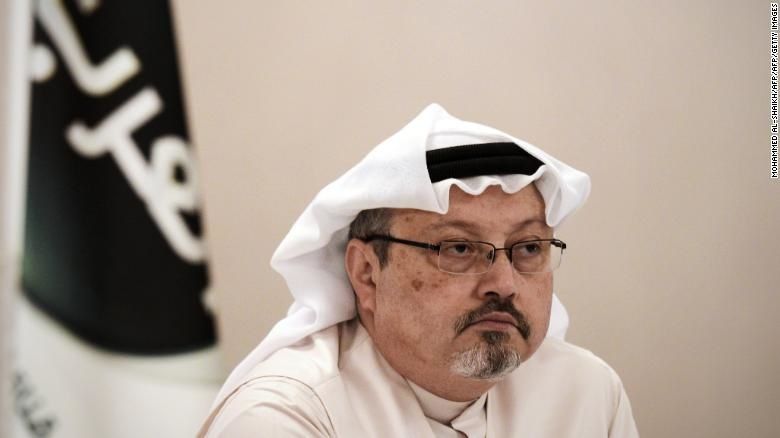December 21, 2018
Alex's big story of 2018: The murder of Jamal Khashoggi.
Not only did the killing of this Saudi journalist capture and hold the world's attention, it threw a harsh light on some larger themes now reshaping global politics.
First, the government-backed killing of a prominent writer underscored the growing dangers that journalists face all over the world. That's a problem not only in autocracies like Saudi Arabia or China, but in increasingly precarious democracies too. This threat to the press is part of bigger trends: plummeting public trust in institutions, a growing "war on truth," and flagging faith in liberal democratic norms.
At the same time, his murder – by all indications ordered by a crown prince with close ties to the White House – also raised legitimate questions about whether Donald Trump's nakedly transactional foreign policy will expand authoritarian governments' perceptions of what they can get away with.
A potentially positive legacy of Khashoggi's murder: The intensified scrutiny of Saudi Arabia threw fresh light on the war in Yemen and helped push the US Senate to cut support for Riyadh's military campaign there. That's partly why a ceasefire became possible for the first time last week. That's a glimmer of hope for an end to "the world's worst humanitarian crisis."
His big question for 2019: Can the world's newly empowered nationalists keep from cutting each other up?
Discontent with the status quo has propelled nationalist politicians to electoral victory in seven of the world's ten largest economies in recent years. And while Italy's Salvini, Hungary's Orban, Austria's Kurz, India's Modi, Mexico's Lopez Obrador, America's Trump, and Brazil's Bolsonaro can agree on what they're against, their interests will clash when they must deal with one another directly.
We see this problem everywhere: Italy and Hungary have migration battles. Italy and Austria have a border dispute. So do India and China. Trump and AMLO have plenty to fight about. AMLO and Bolsonaro are ideologically at odds. And of course, the two biggest economies on earth are now governed by nationalists. Can all these tough guys keep tensions under control?
More For You
World Central Kitchen staff hand out free soup in a neighbourhood that experiences electricity and heating outages following recent Russian attacks on Ukraine’s civilian infrastructure during subzero temperatures in Kyiv, Ukraine February 3, 2026.
REUTERS/Thomas Peter
1,170: The number of high-rise buildings in Kyiv that were left without heating following a barrage of Russian attacks last night on Ukraine’s capital and its energy facilities, per Kyiv Mayor Vitali Klitschko.
Most Popular
What We’re Watching: US critical minerals summit, Rafah crossing reopens, Border violence in Pakistan
Feb 02, 2026
U.S. President Donald Trump and Japanese Prime Minister Sanae Takaichi hold up signed documents regarding securing the supply of critical minerals and rare earths, at a bilateral meeting at Akasaka Palace in Tokyo, Japan, October 28, 2025.
REUTERS/Evelyn Hockstein
Representatives from the European Union, United Kingdom, Japan, and others will meet in Washington this week to discuss a strategic alliance on critical minerals.
Hard numbers: Large protests in Czechia, UAE-linked firm has large stake in the president’s company, & More
Feb 02, 2026
People take part in a rally in support of Czech President Petr Pavel, organised by Million Moments for Democracy group in reaction to dispute between President Pavel and Czech Foreign Minister and Motorists chair Petr Macinka, in Prague, Czech Republic, February 1, 2026.
REUTERS/Eva Korinkova
80,000: The number of people estimated to be in the streets of Czechia on Sunday to show their support for President Petr Pavel after he blocked the nomination of an environmental minister who performed the Nazi salute and posted Nazi memorabilia.
US President Donald Trump and musician Nicki Minaj hold hands onstage at the US Treasury Department's Trump Accounts Summit, in Washington, D.C., USA, on January 28, 2026.
REUTERS/Kevin Lamarque
The US has started handing $1,000 to the bank accounts of newborn babies. But can policies like this one help boost sagging birthrates in advanced democracies?
© 2025 GZERO Media. All Rights Reserved | A Eurasia Group media company.
